#Tohru’s father
Text
just occurred to me that Tohru's grandfather calling her by her mother's name is almost exactly what tohru herself was doing as a three-year-old: forcefully infusing a piece of the dead person into your vocabulary to remind a loved one of the dead person. Tohru did it by deliberately copying her father's speech patterns, while her grandfather faked senility in order to get away with regularly using Kyoko's name. Tohru's grandpa outright says that he started doing it because Tohru looked like she was on the verge of falling apart after her mother's death, which is exactly why toddler Tohru started copying her father! it's got me thinking about genetically predisposed habits and generational trauma and how family tends to be alike even without trying.
#i wonder if he ever realized why tohru started emulating her father#he might've just assumed that they were endearingly alike and moved on#food for thought i guess#fruits basket#tohru honda#tohru's grandfather#(that guy never got a name huh)#sage speaketh
317 notes
·
View notes
Text
ADACHI'S SHITTY EEL PUN
FUCKIN' MANU JUST REMINDED ME OF THIS SDL;FGKKL;W34KLL3K;4


The root of this shitty pun comes from a Japanese idiom, "unagi nobori", unagi being eel and nobori being ascending/climbing. Pretty straight forward: Look at the shape of an eel, imagine it sticking its head up, being held upright, etc. It's just an idiom for something going up, increasing, etc.
JP one is like... Adachi says that Dojima's stock as a father has "gone up" in Nanako's eyes because Dojima brought home eel. And the word used for "gone up" happens to involve "eel".
In English, you can feel that someone's soul left their body while they tried to rewrite this. (I don't blame them.)
48 notes
·
View notes
Text
The "please ruin my life" crew 🥵
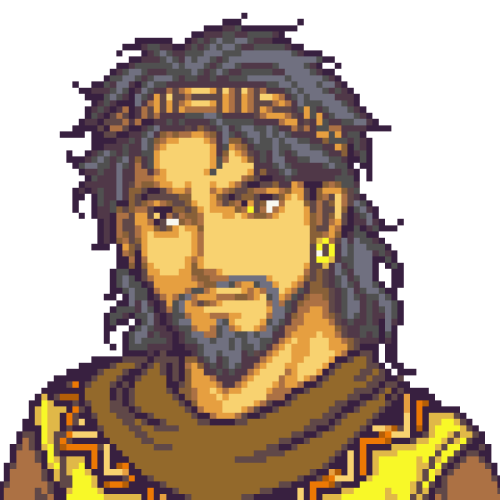
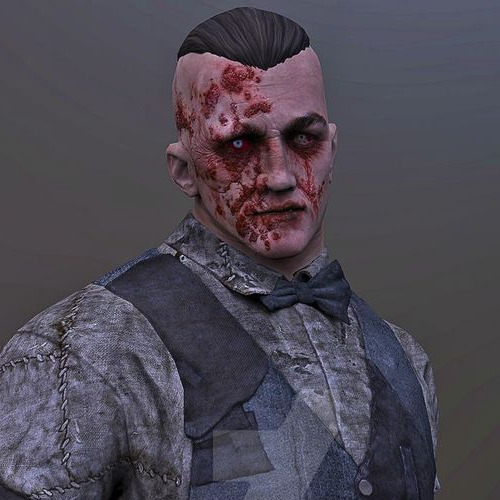
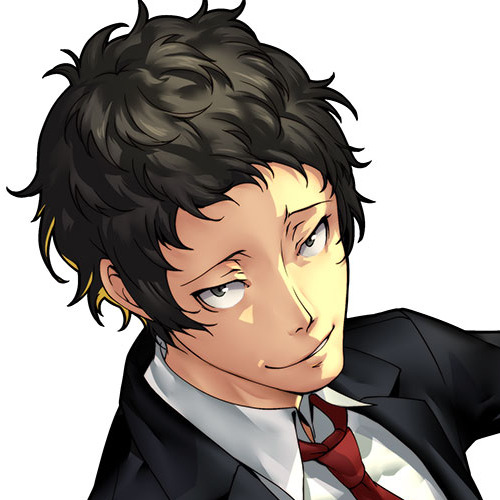
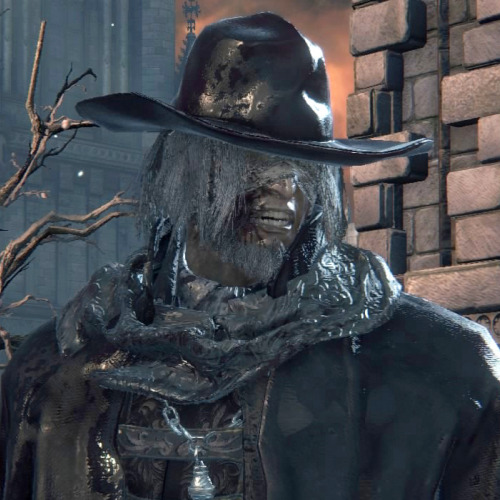

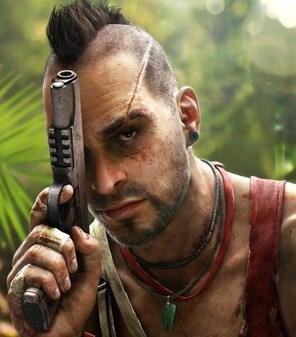
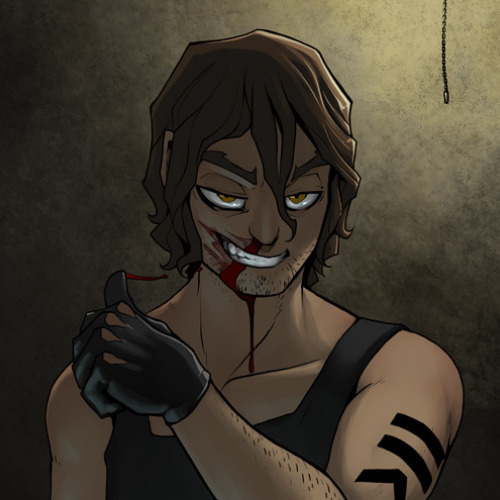
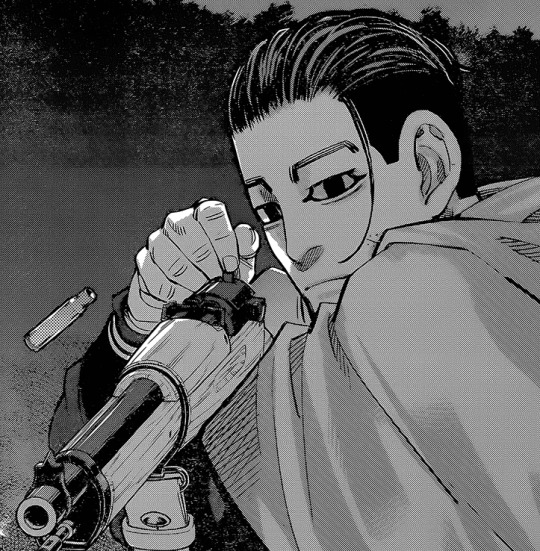
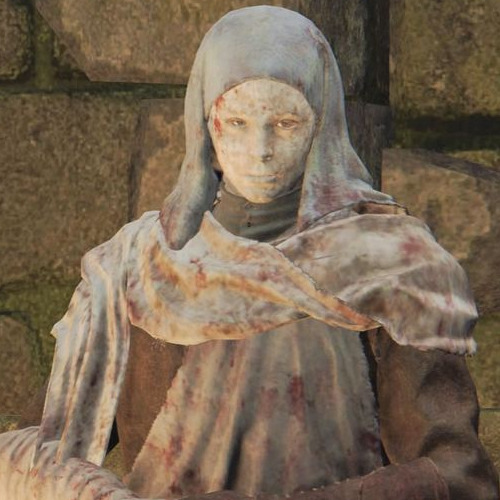
On the lookout for new additions btw 🥴❤️🩹 I love when people do these because I find similar characters (and ppl with similar tastes to follow!) through the tags.
#Darius Andaron Saga#Eddie Gluskin Outlast Whistleblower#Tohru Adachi Persona 4#Father Gascoigne Bloodborne#Pelle Midsommar#Vaas Montenegro Far Cry 3#Strade Boyfriend To Death#Hyakunosuke Ogata Golden Kamuy#White Mask Varre Elden Ring#I am the only mf stanning Darius on tumblr 😩 The most obscure niche blorbo I'll ever have and I didn't even play the fucking rom hack#I just watched a friend (thx fucker) play through it and barked every time that high functioning sociopath slid onto the screen 😳
14 notes
·
View notes
Text
almost at the end of season one of fruits basket, and I can say with certainty that it has a mother problem. beyond the slightly uncomfortable setup that tohru basically mothers the boys anyway, why are basically all the mother figures sans kyoko (who is dead and has been since the beginning of the show) either so emotionally fragile that the slightest hint of adversity makes them crumble into hysteria and/or depression, or else cold and neglectful, only offering conditional love to their children? there’s many good points to this show but this is the part that stands out to me as a glaring example of a theme that should have been explored further and more thoughtfully lol
#also kyoko gives up her life basically to be a good mother to tohru#and I can't stress enough that we haven't seen an evil father figure yet!#so it seems a very all-or-nothing idea of motherhood to begin with lol#moth.txt#beth watches fruits basket
7 notes
·
View notes
Text
Another....favorite....kind of "You Didn't Play The Game" type post I see about Adachi a lot is when people say "he's a good villain just because He Is the way He Is, not because he had a sad childhood or anything"....
....and then you go do his social link and he talks about his sad childhood.
#victor beeps#he never talks about his parents in a positive light. he had no friends growing up. he wasn't allowed to do much else besides study#the fact he was the one who saw nanako wasn't eating her sushi that one dinner and not her own father or big bro-#-when he also left food on his plate but his mother never cared sticks out to me#his rejection of the old woman at junes yet the sadness he feels when she spends time with her actual son tohru and not him#UGHHHH there are more things i wanna say but i've maybe had 3 hours of sleep so im gonna nap
2 notes
·
View notes
Text
Tohru Honda is autistic and there's nothing you can do about it
#fruits basket#tohru honda#look at the facts#shes polite bc her father was and that's the only way she knew how to connect w her mom as a young child is to mirror someone she knew#her mom loved#obviously kyoko would love her no matter what but didnt stop tohru#she was made fun of in school for being different#but the most damming evidence of all is because i said so q
3 notes
·
View notes
Note
talk to me about the theme of emotional isolation for zuko and aang
It's the main reason I'm obsessed with the show tbh.
Can we overstate Aang's isolation within the show. He's not only a survivor--a sole survivor--of a genocide, he's also knocked out of time and history. These are the facts of his physical isolation. But his emotional isolation is such a different beast. It began before any deaths did. He is set apart by the monks and by the whole world as a savior. Shortly after his status as the avatar is made known, his peers exclude him, his power too great. His humanity is denied because he's too divine. Only Gyatso seems to still regard him for who he is rather than his gifts. Of course, that's why the council decides Aang needs to be further separated from worldly relations like that, and vote to send him off. For Aang, it's the last straw. He can't bear further exile from others. To regain some sense of control, he tries to run away from the heavy burden and those who have put it on him. At least this time, he's the one choosing his loneliness. It has become so clear that no one can understand his feelings about the Avatar State.
This is the emotional state he enters the series with, icon rather than human. He starts off concealing his revered identity in an attempt to indulge in simple pleasures, penguin sledding, coy fish riding, etc. But the shame is secretly right there at the surface. He's lovable but mercurial. Friendly and animated with everyone when he first meets them but in a way that's fleeting. The knowledge that he will have to leave the village, in an episodic fashion, having helped the members of the town, even having sacrificed himself for their well-being, is an understood fact of the plot and his life. At most he sheds some of his grief by putting it into words with Katara's encouragement. But despite the whole world fighting through their own grief from the fire nation and Katara's sole-survival of her own culture's genocide, they each have people in their families and cultures who, however bitterly, hold them and hold the broken memories together with one another. No one is as physically isolated as Aang, but, more importantly for his character development, no one is as isolated by their significance to the world.
No one, except Zuko. Zuko, the banished prince. Isn't that what Aang as the Avatar is in many ways: a spiritual prince, an heir by birth to power and legacy, who has been banished from his inheritance. Only, Aang's inheritance would be peace. Zuko's would be the Fire Nation, but because of his humanity, Zuko, like Aang, is without a nation. This is one reason Zuko and Aang are such incredible narrative foils. Aang is rejected from humanity's compassion because of his divine status while Zuko is rejected from divine rule because of his human compassion and failures to demonstrate perfection. (If you're interested in this dynamic in media, Fruits Basket has fantastic explorations of these themes with Kyo vs. Yuki and Tohru vs. Akito.)
How early did Zuko start to notice the disappointment he brought to his father and grandfather? As early as we can see, Zuko seems alone. The episode with that phrase in the title reflects back on his childhood, which, noticeably, lacks the friends Azula manages to keep. He mimics and mocks her cruelty, as well, in an attempt to impress his mother. His insecurity seems already set, a sense that no one can understand. While Aang recognizes that everyone thinks he's too good to belong, Zuko lives in an environment in which he's not good enough to belong.
The reactions to their rejections correspond, too. Zuko's reaction of antagonistic pursuit of anyone and everyone--like Aang's reaction to run away (literally and sometimes emotionally with a smile or joke)--helps keep others in a framework of enemies so he can control his exile rather than the other way around. Yet these behaviors put them in dynamic relation to one another--Zuko is drawn to the endless pursuit of the strangely kind Aang, whose instinct is to behold others while remaining untouchable, while Aang becomes clearly intrigued by the person who refuses to treat him like an untouchable hero, the person who refuses to give up on the possibility that the Avatar can be flawed and fail, no matter how many times he slips away proving his divine destiny.
It's obvious that Zuko is supposed to hate Aang, as the Avatar. "The Headband" illustrates how education in the Fire Nation portrays him if the fact that Zuko's only possibility for regaining his title under his father is bringing the Avatar back isn't enough evidence for you. But Aang ought to hate Zuko just as much, if not more. Instead, they are drawn toward one another with an remarkable intensity, established within the first half of the first season, "The Storm" x "Blue Spirit" combo punch! In fact, the blue spirit episode really reveals what they can mean to each other. Not only in Aang's question at the end that invites Zuko back into the past with him, but in the way that Zuko is made to be the divine entity for a brief period while Aang is helpless in the fort. Then, that question at the end: "Do you think we could have been friends?" Isn't that the opposite of the isolation they feel. In the woods, without a nation or an allegiance, Aang, remembering the people and time that he was forced to leave asks Zuko, who has just betrayed the people who banished him, in another version of life where they were both simple people rather heirs of vast power, if they could have formed a kind of union that would have dissolved the loneliness that consumes both of them. But it's momentary and they have to return to the world that defines them as the Avatar and the Banished Fire Prince.
This becomes one of the cores of the show, as echoed in the finale, where Zuko and Aang consummate their friendship, but by then, through traveling the winding road toward one another and aiming to take on a part of what the other person represents, they have found a balance that refused the binaries of divinity and fallibility that had previously separated and defined their lives, binaries that exiled them from connecting with others, binaries that built towers to isolate them from the world. The victims and survivors of genocide, the subjects of colonial violence, nor the sufferers of abuse need be pure to claim their pain, nor must the people who want and work towards justice be saints to do that work. Harder for many audience members to absorb, despite their love for Zuko who's arc is meant to emphasize the point, there is a spark of divinity in everyone, from the most unloved to the most violent and tyrannical. This second fact must exist alongside the first, or else the premise won't hold. How you choose to act and engage with that spark of divinity is a human choice we each make on our own, but that does not deny it's existence. The divine ideals must be allowed to fall apart into comedy and tragedy, while the mundane, the profane, and the cruels horrors of life must be allowed to be seen as something that hold the possibility to become beautiful and part of a grander design. The Avatar must be allowed to be Aang and Zuko must be allowed to be the Firelord so that we can have Avatar Aang (the last title of the series) and Firelord Zuko (the most celebrated character arc of the series). They need one another to assuage the fear, isolation, and dread that black-and-white perfectionist thinking boxes us into.
547 notes
·
View notes
Text
Tohru Honda: a Subversion of Shoujo’s Nice Girl Trope
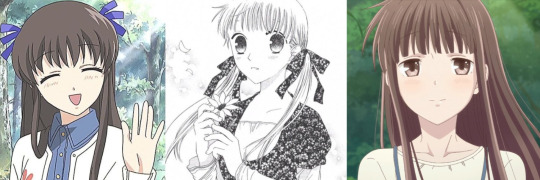
Fruits Basket absolutely nails subverting your expectations of character tropes in anime.
Momiji is introduced as the cute childish boy but boom we are slapped with the fact that he a mother who hated him so much she had her memories wiped of him. Shigure right off the bat looks like the typical perverted uncle of anime when in reality he is one the most manipulative characters in the series. Ayame is the flamboyant, boisterous one whose bravado hides his regret and desire to repent for his past neglect of his younger brother. Which ultimately brings me to the protagonist of Furuba itself, Tohru Honda.
I'll make it no secret that I have a huge soft spot for Fruits Basket as a series. It was the first manga I read, I watched the 2001 series and I was right on the hype train when I saw it was getting a remake that would follow the manga storyline. But I did my best to be as objective as possible in this essay of sorts saying why I believe Tohru is a great example of subverting the "Nice Girl Protagonist" of Shoujo. Tohru is the protagonist of Fruits Basket and when it comes to those who don't like her, it seems she can be hit or miss due to the assumption that she is perfect.
The general consensus of those who do not like her or find her bland compared to the rest of the cast is that Tohru is a perfect and bland protagonist with no issues of her own. That all she does is wave her healing wand of warm smiles and makes everything better for those around her.
However, that opinion couldn't be more misguided. In reality, Tohru is just as emotionally broken as the Sohmas and they mend her heart just as much as she mends theirs. As such, I hope to show those who find her bland or otherwise boring that there is more substance to Tohru's character than they believe.
At first glance, Tohru does seems like your typical Shoujo protagonist. She's nice, almost to a fault. She would rather talk her way out of a situation instead of throwing hands, she doesn't get mad in situations other typically would, and she has a hard time asking for help. Oh and with a dash of anime originality, she's an orphan. However even as early as episode 1, you can see hints that Tohru is not going to be the usual nice girl protagonist with her desire to work and be as independent as possible. The mangaka does a great job throughout the series showing with hints and broad examples that Tohru is just as complex as the colorful cast around her.
Ironically enough though, when hints of Tohru's trauma are sprinkled throughout the series it is seen as annoying even when the Furuba takes time to give insight into why she does the things she does.
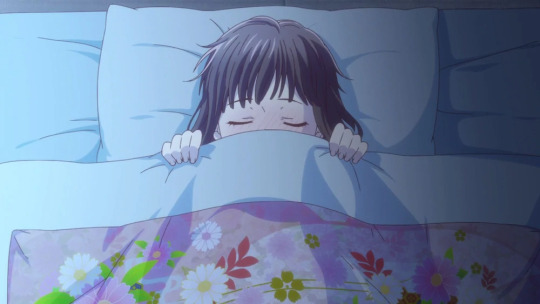
She mentions her mother constantly in anecdotes of whimsical stories or snippets of wisdom her mother imparted her with.
Compared to the death of parents to other anime protagonists, Tohru's situation is a bit more unique. Tohru's father may have died when she was young but the same cannot be said for her mother, Kyoko, who died fairly recently. When the series begins, Kyoko has only been dead for a few months and it is more than apparent as early as episode 1 that Tohru is desperate to keep any semblance of her mother's existence alive. Kyoko died before Tohru's first year of high school even ended and worse, was told in the middle of class. Tohru has had barely any time to heal from this loss and it is evident in how she talks to her mother's photo.
Yes, in Japanese culture, it may be typical to have photos of departed family members, making a shrine for them and leaving offerings from time to time. But Tohru takes this to a completely different level, showcasing how deep her trauma runs.
When she is digging frantically to take out her mother's photo after the landslide destroyed her tent, she cries "She can't breathe in there. She's in pain." And that's just episode one.
Nobody completely over the death of their parent would speak like this, referring to a photo as a living person. She lost her mother and she didn't even get a chance to say goodbye, even feeling guilt to an extent about the situation. Tohru didn't wake up to tell her mother that she would see her later. There is no way that simply getting up to tell her mother goodbye would have changed the outcome of her fate, but Tohru still feels that way. That it didn't matter if she had tests or work or the next day, the one she should have put first was her mother.
Anyone who has or is currently experiencing the grief of losing a loved one has likely done the same. Wondering if, if the situation was anything other than illness or old age, there was something they could have done. Things they should have said or could have said differently. What more could they have done to help and the feeling is all consuming. Even if it is unprompted, they somehow will manage to insert their lost family or friend into a conversation that didn't include them or may randomly begin talking about them. A lot of the time, these people don't even realize that they're doing it which is shown in season 2 with Tohru when Hiro asks her why she talks about her mother so much.

She is too positive.
Tohru's positivity is one of the most easily seen aspects of her character. Where others might see the glass half-empty, Tohru sees it as half-full. Her positivity is even noted upon by characters within the show, Saki (Hanajima) mentioning that she doesn't believe she could personally smile like that so soon after the death of a loved one.
Tohru doesn't like thinking about her problems. She doesn't like expressing her sadness. She doesn't want to worry those around her when they likely have their own problems to worry about. Saki predicts that this ability Tohru has to act this way is because she would scold herself if she ever showed a hint of sadness. And Saki was right because we see Tohru later on doing exactly that, crying but forcing herself to try and smile and scolding herself for not keeping it together.
Rather than let Yuki comfort her when she is in tears, she smiles and completely changes the topic even though tears are coming down her face.Tohru tells Kyo that she needs a minute to get herself together because breaking down in tears in front of him wasn't what she planned. She was supposed to smile when she saw him again.
Tohru would rather pretend everything is fine even when she is seconds away from falling apart because toxic positivity is something she struggles with.
No one can be that positive all the time, not even Tohru.
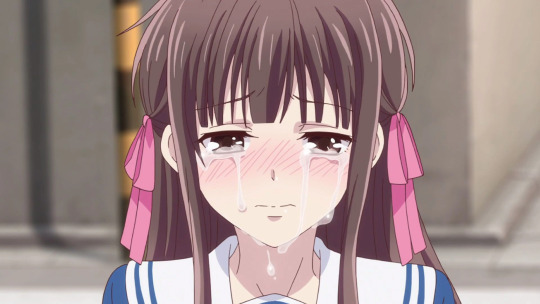
Tohru has a hard time asking others for help.
Yes, Tohru is kind-hearted by nature but she genuinely does believe that she could burden those she troubles for help. Considering how her maternal side of the family wanted nothing to do with her and her paternal side of the family talks poorly about her, it isn't difficult to see where that frame of thinking came to be. When her mother died, her paternal side of the family didn't argue over who wanted to take Tohru in, they argued over who should take Tohru in and that is an important distinction. Even more so the fact, they had these arguments in front of her. When it was finally settled that she should live with her grandfather and that was uprooted due to upcoming renovations, it makes sense that she would rather be homeless in a tent than bother her friends who don't have the space to provide for an additional person even if that.
In Tohru's mind, it was shown very clearly by her family that she is a burden. She's an extra mouth to feed and an unwanted mouth at that, as her family never holds back in disparaging Kyoko even if Tohru is present.
As such, when Tohru is in a situation where she has no other choice than to accept their help, she believes she should be extremely grateful. They're taking their time to help her when they easily could have done otherwise, so why should she want more? Why should she complain? If she has any desires, she pushes it down because of that belief because she feels awful and that she shouldn't want for more when people are already going out of their way to help an extra mouth to feed. Because of this mentality cultivated by the bulk of her paternal relatives mistreatment, she will seldom voice her wants.
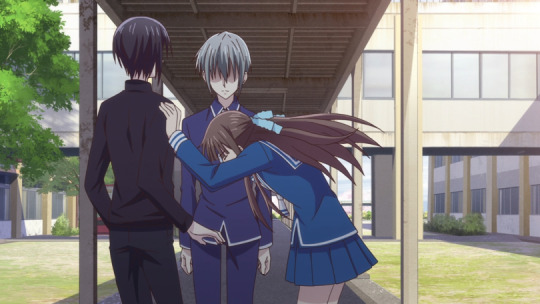
She never gets angry or upset.
To say Tohru never gets angry or close to physical in her reactions is far from the truth. Tohru gets angry when the issue impacts those that she cares about.
Tohru can tolerate being mistreated but she will always draw the line at the abuse being directed to someone else. When she first meets Akito and she sees Yuki's clear discomfort and fear, she pushes Akito away from him immediately. When she witnesses Momiji being punched by Akito, she immediately steps in and places herself in front of Momiji to physically shield him. When Rin tells her not to meddle with the curse and involve herself, Tohru, without cruelty, shoots back that she will absolutely meddle and involve herself because she refuses to lose the people she cares about to someone who has clearly been abusing them emotionally and physically for years. Tohru's tolerance for mistreatment has a limit, she is just unfortunately not included in that limit. So when we finally see her get angry in a scenario that includes herselfー when Kyo tries to run away because he feels he doesn't deserve her love, it's incredible.
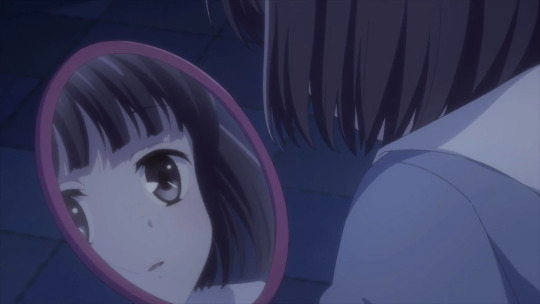
There is so much more to Tohru than meets the eye. Tohu's reaction to Yuki getting a cold isn't just Tohru overreacting for the sake of being a nice girl, it's because her father died from a cold he brushed off and that cold turned into a fatal illness. For Tohru, colds aren't something that can just be brushed away because what if it turns into something worse.
Tohru would rather wear clothes until they practically fall apart than buy new clothes because she knows that she can't just spend her money haphazardly. But when it came to Valentine's Day and wanting to express her gratitude for those who cared about her, she had no problem dropping an entire check to purchase the ingredients to make enough chocolate for everyone.
She disregards herself and the efforts she puts forward. When she feels she has failed in helping Arisa, she specifically says "everyone around me has always helped me and when it is my turn to do the same, I can't." These aren't problems she overcomes herself by simply "smiling through the pain" as some who discredit her argue. Tohru is repeatedly loved and helped by those around her who care for her and opens herself up to receive that love and help over time. She is taught by her grandfather and Sohmas that is okay for her to be selfish and ask for things.
Her friends teach her that she helps them so much and that in reality they feel like they are never there to help her when she needs it.Her friends get upset that the same amount of money she would spend on them, she wouldn't spend on herself.
She is told that the way she villainized Katsuya after his death because doesn't make her dirty or a bad person because she was a child that was scared to lose her mother. That her fear and desperation to make her mother acknowledge her was understandable. That mimicking her father in her attempt to draw her mother's attention probably helped more than she realized.
Tohru is not just a "Nice Shoujo Girl" Protagonist, she is a girl with trauma who would rather focus on the issues someone else has than look to her own.
Like I said before, this isn't me trying to get Tohrus haters to like her. People are entitled to like and dislike whichever characters they please, but it is a complete disservice to Natsuki Takaya's writing to say Tohru is bland and has no struggles of her own. Tohru has many problems and struggles she has to deal with throughout the series and seeing those issues she overcomes being brushed aside as her being perfect and having no problems is a complete oversight. As such, I just simply wanted to peel back Tohru's layers and showcase that just as characters such as Momiji, Shigure and Ayame are more than the tropes they are introduced as, Tohru is as well.
[i wrote this on reddit too]
#fruits basket#furuba#fruits basket 2019#tohru honda#kyoru#kyo sohma#yuki sohma#momiji sohma#shigure sohma#ayame sohma#saki hanajima#arisa uotani#kyoko honda#katsuya honda#akito sohma#fruba#fruba 2019#shoujo#character discussion#animanga thoughts
3K notes
·
View notes
Text
Similarities between two of the sweetest, kindest, beautiful inside-and-out women of anime: Miyo Saimori and Tohru Honda
1. Both come from a family that looks down on them and treats the poorly.
For Miyo, the cruel members are her step-sister, step-mother, and even her father.
For Tohru, it’s her aunt and her cousins. Grandpa is the kindest of all of them.

2. Despite that, they had mothers who loved them very much. Unfortunately, these mothers died fairly early in their child’s life.
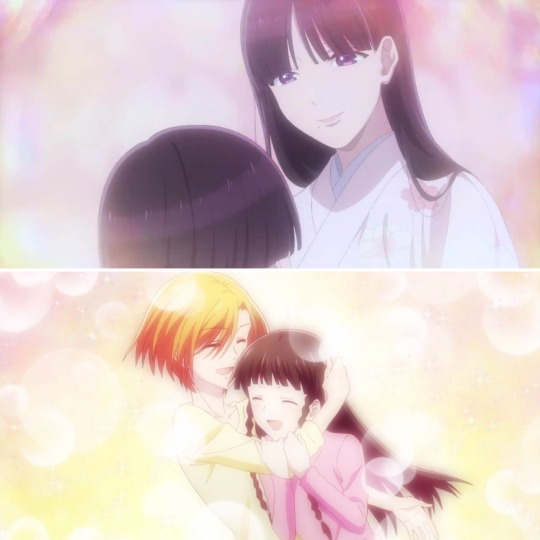
3. With that loss, they had a special item that played a large role in the remembrance of their mothers.

4. Due to unforeseen circumstances, they both wind up living in a house that belongs to a stranger.

5. Both have a personality that tends to win the hearts of all they come across, especially of the family they have become a part of.

6. These ladies are both amazing cooks, and are happy to make meals for their new “families”. It’s one of their many ways they help out around the house.
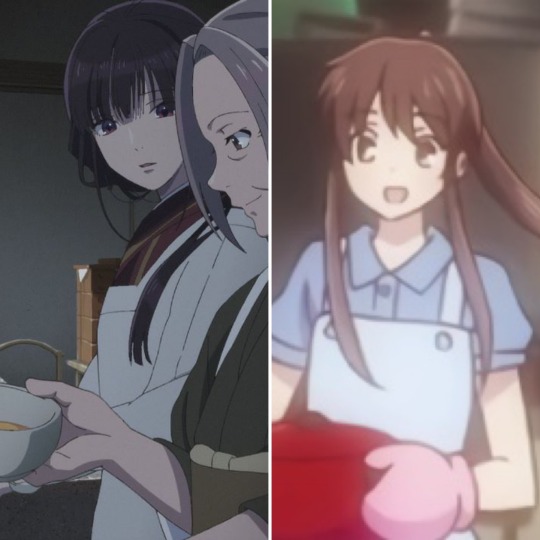
7. Both end up falling in love with a man that can be considered cold, distant, and stubborn at first. You get to know them, and they are the absolute gentleman who truly loves and cares for their woman. They will do whatever it takes to protect her.
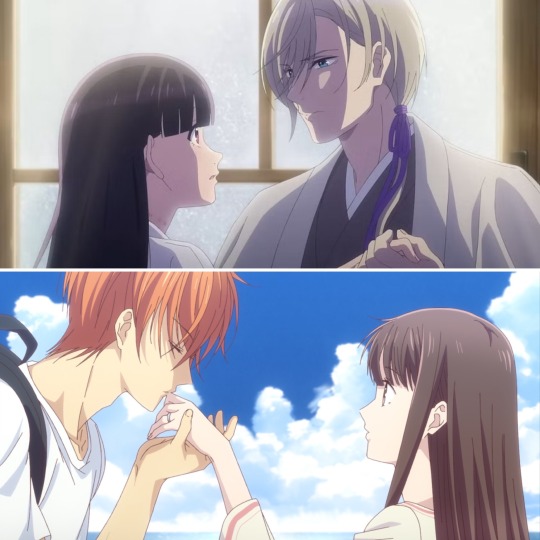
#my post#similarities#parallels#comparison#anime#my happy marriage#fruits basket#fruits basket 2019#miyo saimori#tohru honda#kiyoka kudou#kyo sohma#kyoru#sumo saimori#kyoko honda#kanoko saimori#kaya saimori#shinichi saimori#tohru’s aunt#tohru’s male cousin#tohru’s female cousin#grandpa honda
330 notes
·
View notes
Text
Kazuma Sohma; The father

It isn't common to see a caring parent in manga/manhwa. Usually the characters deal with their problems alone and their parents are either dead, absent or abusive. That's why Kazuma Sohma from the Fruit Basket manga was a very nice surprise for me.
He is the grandson of the previous cat, and he feels guilty for not taking a cooky from his caged grandpa for fear of getting cursed. He regularly visits the grave of his grandfather, who isn't even allowed to be buried in the Sohma cemetery. When Kyo loses his mother, he takes him in as an opportunity to repent.
Kazuma is a calm, humble, and wise person. He feels responsible not only for Kyo, but for the rest of the zodiac children who are being discriminated against and abused. Unlike Kyo's father who sees him as a monster and his mother who doesn't let him leave the house, Kazuma treats him like a normal child, introduces Kyo to the world around him, spends quality time with him, and isn't afraid to hug him. He teaches him karate as a mean to control his anger and channelize it. Soon Kyo learns that he can trust this man and knows that if he runs to him there are arms open to embrace him. He wishes that kazuma could be his father.
One of the things I love about Kazuma is that he doesn't just see Kyo as a victim and believes that he needs to change, stop denying his true self and running away from it. He wants Kyo to stop blaming Yuki, and believes that one day he will be loved and respected but he should earn it first.
Even when he realizes Tohru's feelings for Kyo, he worries that it is nothing but pity because he knows that the reason his grandmother married the cursed, caged cat was just pity. He would rather Kyo be alone than be loved at any cost.
He enjoys pulling Kyo's leg and deliberately says things to provoke him. He no longer hugs the teeanage Kyo, but he always caresses his head. His affections are so obvious and unfailing that others also notice the genuineness of his paternal feelings. He is a strict instructor though.
He considers Kyo as a troublesome child who should wait patiently for him to grow up and mature. He allows Kyo to fall and rise from the bottom and does not pressure him. His acceptance and patience despite his own discomforts and fears for his son's future is admirable. He suffers from Kyo's bitterness, smiles and gets over it.
Even though he knows that his decision to reveal Kyo's true form to Tohru could ruin his relationship with him forever, he accepts the risk of being hated for Kyo's sake. He knows that if Kyo cannot accept his true form and understand that he can be loved even in his monstrous form, he will never be able to change.
When he attends the parent-teacher meeting, he is different from other parents. Although he has his own doubts and worries, he jokes that he cannot see his son as an employee or a student and only asks Kyo to inform him of his decision.
Being clumsy at home after raising a son fo r a decade is pretty funny. He doesn't even know how to make tea and always burns the fish. For a boy who grew up with burnt fish, Kyo turned out to be a very good kid.
113 notes
·
View notes
Text

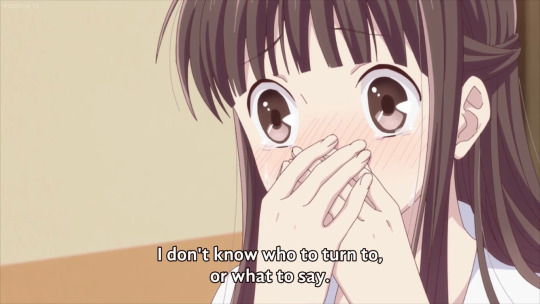


People who don't bother to watch Fruits Basket or don't understand the psychology behind the character: Tohru is too perfect, she's unrealistic--
Yeah, that's the point, it's a fake persona she built up as a trauma response. She's taking on the caretaker role, compulsively taking care of others, being who they need her to be, trying to ignore her own pain, deny the reality of her mother's death by talking to the photograph, and bottle up her suffering.
She's a contrast to Akito, as the final season shows, too, as both are desperately afraid of losing love. The story about why she speaks so formally, because her father spoke that way, and she was scared her mother would follow him in death, so she hated him in a childish way, so she spoke the way he did in the hopes of securing her mother's love... they're similar in terms of their abandonment issues, they just present it very differently.
One can certainly argue we saw too little of it as viewers because of just how much she's become the mask and how she bottles everything up, but Tohru is as broken and human as everyone else in Fruits Basket, she's just also a very genuinely kind and trusting person, even if part of her motivations are born of "selfishness" (read: a natural desire to be loved, complicated by a fear of abandonment).
#Honda Tohru#Fruits Basket#Fruits Basket: The Final#spoilers#trauma#major spoilers#Lamees' screencaps
393 notes
·
View notes
Text
the thing is, i'm sure Kyoko noticed that Tohru began talking and acting like her father. it was what drew her out of her depressive funk, after all. but how do you address something like that? Tohru was barely three, and Kyoka crawled out of her depression with everything she had - if there was a way to tactfully say "you don't have to act like your dead father anymore," she didn't have the energy to find it. and it was probably comforting, hearing her husband's little habits live on in their daughter, so she didn't press it. then somehow Tohru was five, seven, twelve, and how can you bring it up after all this time? how do you even know what's deliberate emulation and what's just natural quirks/habits born from the same temperament? is it even bothering Tohru anymore? how can you even mention the topic without making it awkward as hell? so they didn't talk about Katsuya's death or the horrible grieving period, and then Kyoko died and that was that. i don't think it was malicious or overly selfish, i think it was just. how do you even talk about something like that.
#i think they would've talked about it eventually#they just weren't ready for it before kyoko died#tohru hadn't matured enough as a person yet#and on some level neither had kyoko#i just think it's interesting to think about#fruits basket#tohru honda#kyoko honda#edited for your convenience#(<-capitalized the names)
73 notes
·
View notes
Text
Momiji Sohma and his beautiful, complex relationship to Kyo (part 1 of 5)
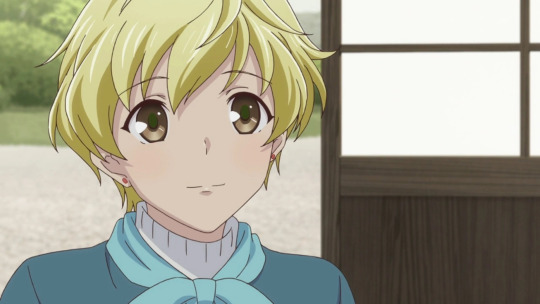
So, if Yuki is my favorite character of the main trio, Momiji would have to be my favorite of the large cast of secondary characters. He may even be my favorite character outright- a hard pick, as there are so many characters to love in Fruits Basket!
When it comes to Yuki and Kyo, their relationship to each other and Yuki's relationship to Haru (which is beautiful and now I want to do a post on them, too) are perhaps the two most obvious dynamics among these four boys. But I think Momiji and Kyo have their own important, deep relationship, with huge significance to the plot and to Kyo's arc in particular.
In many ways, Momiji and Kyo's stories are parallels.
They both lost their mothers at a young age. Kyo watched as his mother stepped in front of a train, and Momiji watched as his mother's memories of him were erased (though it's worth noting Momiji's mother was also suicidal). Both watched their mothers suffer for years because of the curse.
Both had a parent who viewed them as sub-human. Momiji's mother referred to him as a "creature," and Kyo's father called him a "monster."
Both also had fathers who put responsibility for their mothers' mental health issues on them and ultimately abandoned or neglected them. And both had loving surrogate father figures who took them in out of guilt, Kyo in Kazuma and Momiji to a lesser extent in Hatori (it does seem like Momiji's father was somewhat present in his life, though Hatori was much more present for him).
They also both had reputations as a bit of a wild child, Kyo because of his short temper and aggression (and stereotypes about the cat), and Momiji because of his id-driven hedonism and frequent lack of supervision. They're both impulsive to a fault, Momiji in pursuit of maximum fun, and Kyo out of extreme self-hatred and a desire to protect the people he cares about (mostly from himself). They each lean into people's misconceptions about them - Momiji encouraging people to underestimate him due to his small size because it allows him to get away with more, and Kyo willing to let people see him as a monster because he believes that's true (and therefore using physical intimidation as his main strategy for protecting people he cares about).
They're also both quite good at reading others - for Kyo, this is remarked upon several times in canon, and for Momiji, he's often cited by fans as possibly the most emotionally mature character in the series.
And they both are at their best when they act a bit more like each other, Kyo when he lightens up and lets himself have fun, and Momiji when he stands up for himself and the people he cares about.
I would even argue that Kyo is the main driver behind Momiji's character development, and that Momiji is the main catalyst for Kyo to understand and accept his feelings for Tohru.
So, with all that in mind, let's look at Momiji's first appearance with Kyo at the first culture festival.




(An aside: Hiroshi's reactions in this scene will never not be funny to me.)
So, the first time we see Kyo and Momiji together is at the first culture festival, when Momiji is officially introduced to Tohru and thus to the reader (after a brief appearance 1 chapter/3 episodes earlier, where we're not entirely sure who he is). In quick succession, Momiji proceeds to:
jump on Yuki's shoulders and tell him he looks like a girl
get scolded by Hatori for running off on his own
excitedly introduce himself and Hatori as relatives of Yuki and Kyo to the crowd of students, making sure to mention that he's half-German
climb on top of the rice stand, frightening everyone, eating a rice ball he probably didn't pay for
get dragged away by a grouchy Kyo, laughing all the way
It's quite a memorable entrance!

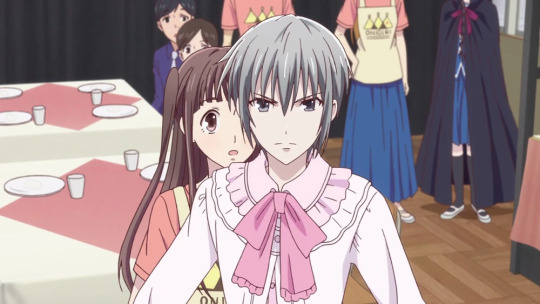
But a closer look at this scene suggests that Momiji was causing a stir for Yuki's sake as much as for his own desire to have fun.
he jumps on Yuki right when Yuki's feeling extremely self-conscious about all the attention he's receiving, immediately after both Tohru and Kyo have made comments about his appearance
he climbs atop the riceball stand right when Yuki looks ready to murder Hatori
One could argue that this is just Momiji being his typical wild-child self, especially since he tells Yuki he looks like a girl right when Yuki's at his most self-conscious about his feminine appearance, but it fits with a pattern we see repeated throughout the series: Momiji is willing to make a spectacle of himself if it helps him achieve his goals, whether they are to have more fun or to protect someone he cares about (all the better if it's both!).
I do wonder about that comment - Fruits Basket can be very subtle, so I think there are multiple ways of interpreting Momiji's comment to Yuki. It's possible he made that comment because he didn't know what Yuki was so upset about, or to remind Yuki that of course people are going to talk about what he's wearing when its unusual for him, or maybe for another reason altogether. But what I think is most telling is that he says it without any judgment - it's simply an observation of fact. That, in and of itself, might be enough to help Yuki feel less self-conscious about the whole thing, whether Momiji intended that or not.
As Momiji is dragged off, Hatori reveals to Yuki that they're here because Momiji brought home the flier Tohru dropped when they met 3 episodes/1 chapter earlier. He also reveals that Akito wanted to come, to Yuki's terror, but was too ill, so Hatori is here in her place.

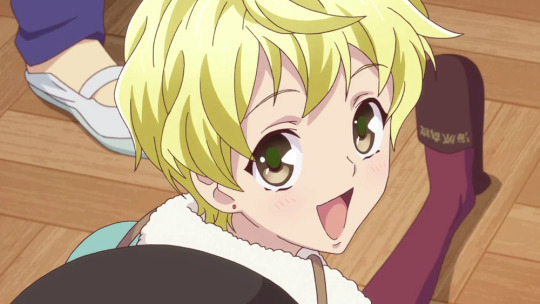
After Kyo drags Momiji away, we see the first iteration of their play big-brother/little-brother dynamic. Kyo's been trying to scold him this whole time, and Momiji fake cries that Kyo "hit" him, but he immediately beams when he realizes Tohru is right behind them.
Kyo probably gave Momiji a light rap on the head or something while scolding him (we know Kyo's a skilled martial artist who knows better than to fight people without training), and Momiji overreacted because teasing Kyo is fun and that's their "thing." But what's super interesting to me is that the only other person Kyo has scolded up until now or given a knock on the head is the only person we know he cares about and wants to protect: Tohru. So, even though outwardly, Kyo seems angry and annoyed at Momiji, he's treating him the way he treats people he cares about and wants to protect.
Momiji then goes over to Tohru, where he:
tells her he came specifically to see her
FLIRTS WITH HER IN FRONT OF KYO ("Ja! Fate brought us together that day, huh?")
tells her his papa owns the building where she works and he likes to hang out there
and confirms she knows the Zodiac secret before announcing his plans to hug her


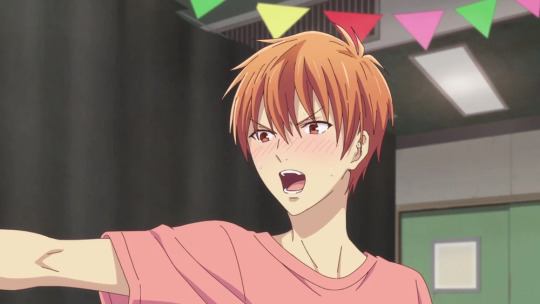
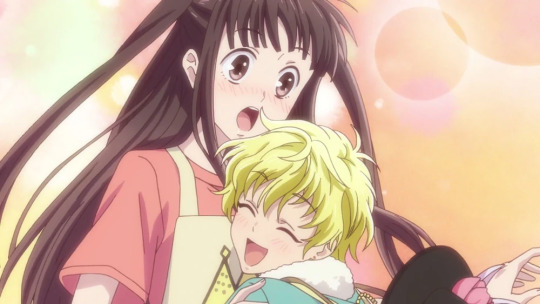
Kyo physically prevents Momiji from hugging her and they have this INCREDIBLE exchange.
Kyo: "Hold it, Romeo. Remember where you are."
Momiji: "Keeping Tohru all to yourself just because you like her? I bet you hug her every day!"
Kyo: *blushes* "As if I'd do that!" *drops Momiji*
Momiji: *jumps into Tohru's arms* "Gotcha!"
At this point in the story, I doubt that either Kyo or Momiji feel the deep, romantic love they both feel for Tohru by the end of the series. But if we accept that they both have at least a crush on her by now, they're going about it in completely opposite ways. Momiji openly wants to hug Tohru as often as possible and spend as much time with her as he can, whereas Kyo wants to avoid making Tohru uncomfortable and avoid any semblance of impropriety that could reflect poorly on her.
So, Momiji hugs Tohru and transforms, and Tohru's classmates pull back the curtain and start asking questions about what happened. How do they get out of this situation?
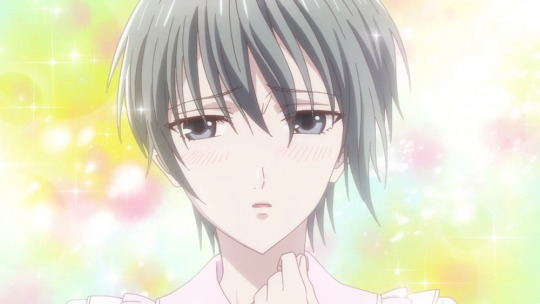
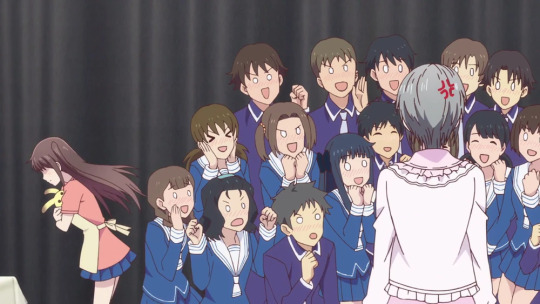
Well, Yuki takes a lesson from Momiji's earlier actions, making a spectacle of himself to protect the family secret (and therefore Tohru).
So, in summary, in Momiji's first appearance:
he shows Yuki it's okay to play up the aspects of yourself that make you different in pursuit of a goal
we clearly see that his crying at Kyo's scolding is an act
he immediately notices and calls out Kyo's feelings for Tohru to trick Kyo into letting him go
he generally just does whatever he wants, including hugging Tohru, in stark contrast to Kyo, whose approach to life seems to be all about denying himself what he wants because he doesn't believe himself worthy (which is the exact opposite of the advice he gives Tohru, that it's okay to be selfish sometimes)
We see that Momiji is much smarter than he lets on, but also that he has a lot of growing to do, and that he and Kyo are opposites in many ways.
I'll leave you with these cute shots from S2 (because they didn't fit with any of the other posts), where we see their big brother/little brother dynamic was already in place in elementary school. (Also, poor Yuki!)
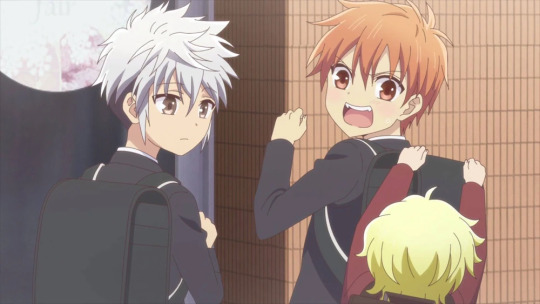

Momiji and Kyo: Part 2 | Part 3 | Part 4 | Part 5
#fruits basket#furuba#fruba#kyo sohma#tohru honda#yuki sohma#momiji sohma#hiroshi#hatsuharu sohma#hatori sohma#sad seahorse daddy hatori sohma#Kyo and Momiji are basically brothers!#kyo's cat ears#catboy kyo#furuba analysis#fruba analysis#fruits basket analysis#character analysis#analysis#character development#character traits#rich characterization#by cinderella-ish#my meta
37 notes
·
View notes
Text
One year in simping
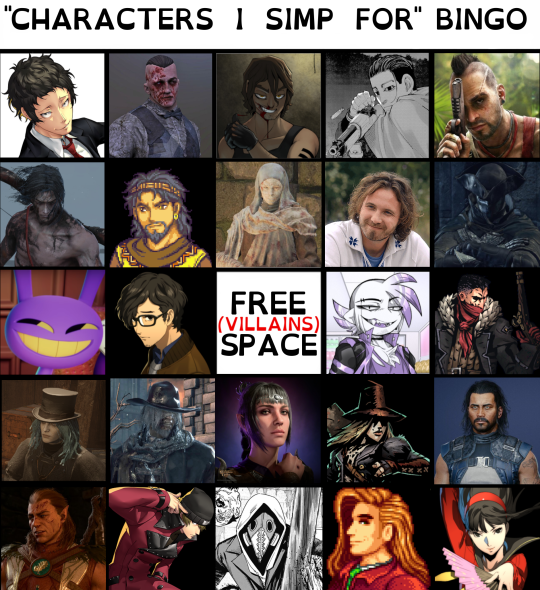
Please DO throw suggestions at me 😎👉️
Template under the cut.
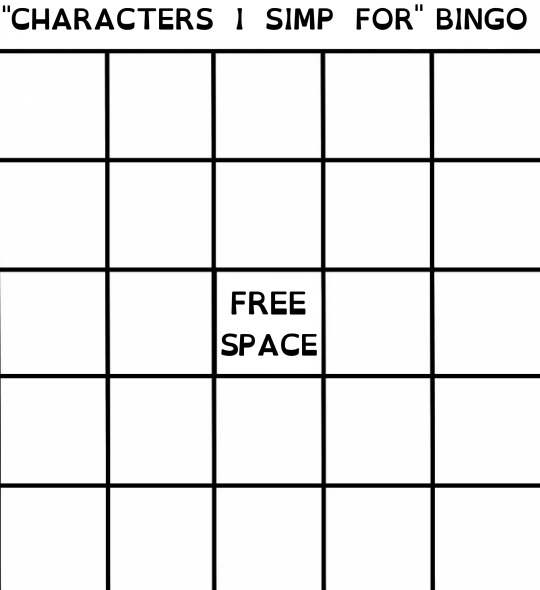
#Tohru Adachi Persona 4#Eddie Gluskin Outlast Whistleblower#Strade Boyfriend To Death#Hyakunosuke Ogata Golden Kamuy#Vaas Montenegro Far Cry 3#Genichiro Ashina Sekiro#Darius Andaron Saga#White Mask Varre Elden Ring#Pelle Midsommar#Ringfinger Leonhard Dark Souls 3#Jax The Amazing Digital Circus#Takuto Maruki Persona 5#Rasmus Br<3ken Colors#Highwayman Darkest Dungeon#Giangio Lies of P#Father Gascoigne Bloodborne#Shadowheart Baldurs Gate 3#Graverobber Darkest Dungeon#Saul Bright Cyberpunk 2077#Halsin Baldurs Gate 3#Shinjiro Arigaki Persona 3#Violence Fiend Chainsaw Man#Elliot Stardew Valley#Yukiko Amagi Persona 4#I partially did this to learn GIMP 👏
13 notes
·
View notes
Text
i will never not cry over momiji sohma. completely rejected by his mother who regretted ever giving birth to a creature like him and chose to forget him instead of trying to love him. begged by his father to let her forget and promised by him that he would love him that much more to make up for it. but instead his parents have another child who doesn't even know about him and become the happy family they wanted but without him. his little sister somehow still takes notice of him though but his father is so desperate to keep momiji away to keep his happy little family. he makes him quit his violin lessons just because his sister sees the same teacher, even though she only started the violin because she watches him play and wanted to be like him, to play WITH him. even though his dream is literally to become a professional violin player and to one day play a private concert just for the three of them. he even HIDES the german accent he got from his mother whenever he speaks to them so they aren't suspecting of him. and he loves tohru, who he knows loves kyo. even though he's sad, i think he was still happy to encourage kyo to keep living and to get with her because he cares a lot for him, for both of them. he's always happy go lucky and upbeat and hopeful and strong and so kind despite what he's been through. it devastates me every time i think of him.
#he was so young too like they had no business pinning that kind of guilt and responsibility and PAIN on to that child#rant sorry i cry#fruits basket#sohma momiji#momiji sohma#he is so precious
34 notes
·
View notes
Text
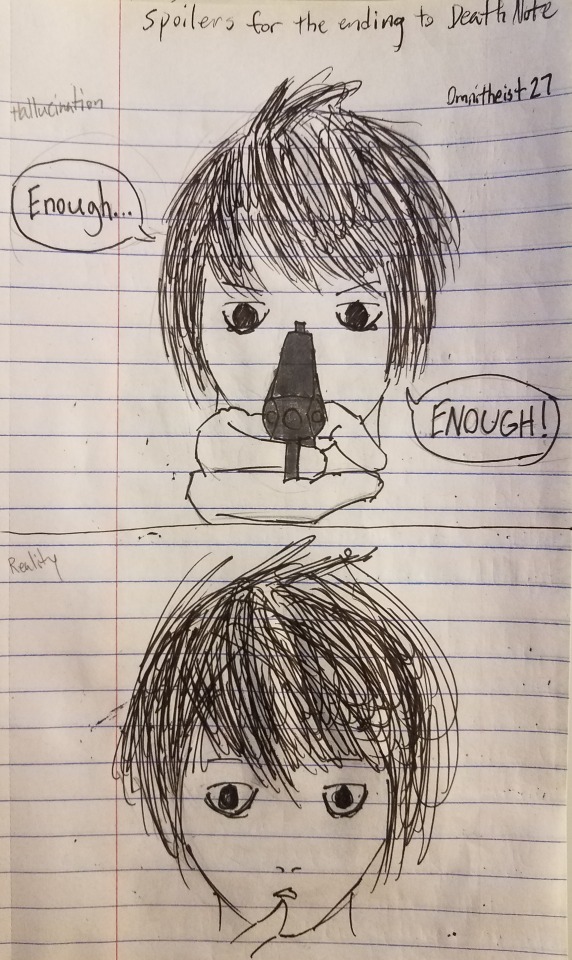

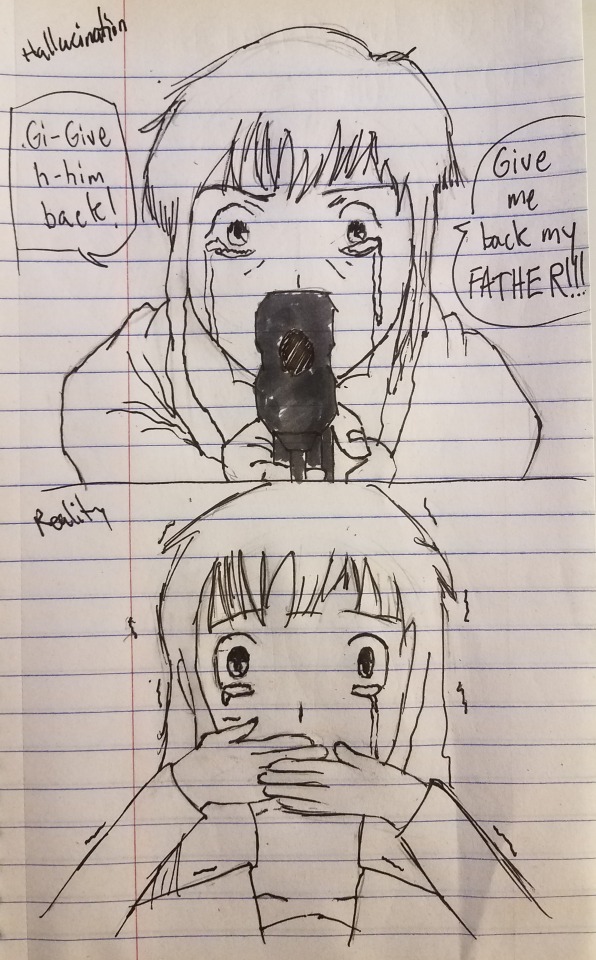
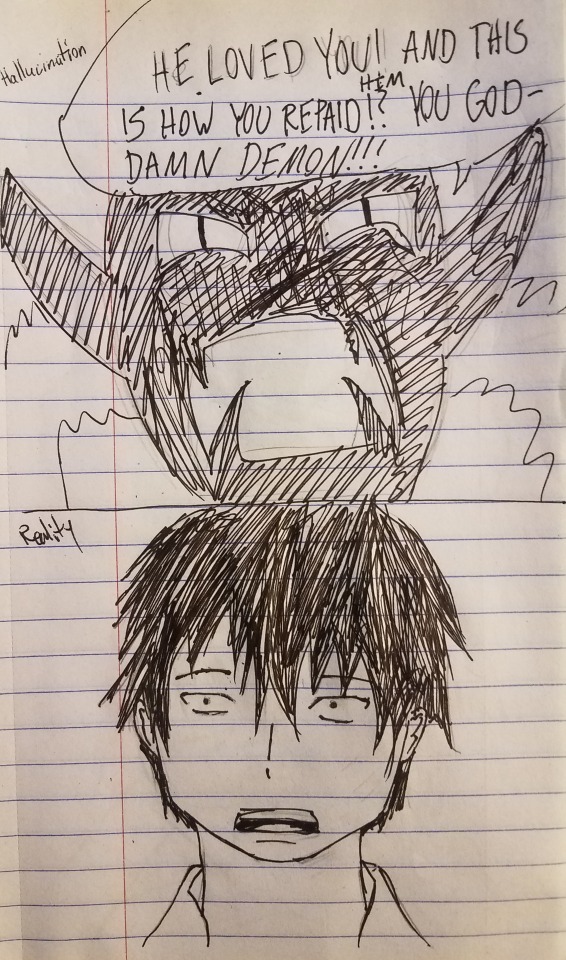
@the-ravenclaw-werewolf and @purplemochi20055
The 40 - A traumatic revelation
Hey ya'll I'm back with the next fan comic I promise you all!
Oh ho, drawing this fan comic of The 40's reaction to the ending of Death Note was a challenging one due to the lack of motivation and anticipation of the final chapter of Main Character Syndrome. And I got to say, it came out pretty good...for the most part.
Now, oh my gosh, the ending to Death Note regarding Light getting shot by Matsuda and nearly killed was quite a dramatic climax when I first watched it back in middle or high school. Then, I stumbled upon The_Ravenclaw_Werewolf's fanfic and became hooked on the possible reactions to the forty chosen anime of the main characters. I have to tell ya, emotions would be flying high for many of our anime audience as they watched Light Yagami's descent into madness and saw him stoop to many lows unimaginable for them.
But the one low I really would like to see The 40's reaction to Light is how he calls his own deceased father a "fool" whose idealism would only be inefficient in his new world, where it might as well registered to any sane person's mind that Light is saying that Soichiro deserves to die even though that probably wasn't his intention. That particular moment would be the trigger for those in The 40 with really bad Daddy Issues and probably go as far as hallucinating themselves in Matsuda's shoes opening fire on Light afterward.
----
For L, I know that he's the world's greatest detective in Death Note and saw plenty of nasty crimes committed by the most heinous serial killers while growing up, along with him being very stoic and cool-headed as a result of his own "quirks" and the desensitization of seeing death bodies to deal with the obvious high stress that comes with the job. However, emotions are not rational and I wouldn't put it past him to have an anxiety attack from witnessing something really bad (e.g. his scared reaction upon the mention of Shinigami for the first time in the manga), and obviously, L would be triggered in his own way after witnessing his own death and Watari's, the growing hatred he'll gain for Light, and to his own surprise when seeing himself in Matsuda's place as a result of his emotional imbalance and frankly, having enough of Light's bullshit. When drawing the hallucination L, I looked up the character art from the bad ending of The Boogyman regarding Keith Baring aiming a gun at the villain with his blood as tears coming down his eyes, which represents Keith's unresolved grief and guilt from being unable to cry from the death of his son.
For Edward, it's very obvious that he's got a deep-seated grudge against Hohenheim for his abandonment of him, his brother, and their mother (even if it was for good reason). But Edward witnessed Light's madness and willingness to endanger his own family for his delusions of godhood will, not if, earned him a spot on his hatred and would override any hate he has for his estranged father. Also, Edward has shown a very humanist approach as a State Alchemist by refusing to kill others, and he'll likely advocate for Light's imprisonment despite his hatred for him. Of course, it would come as a shock for Edward to see himself in Matsuda's place shooting Light multiple times before being readied to execute him with a headshot, showing that he's not ok, and ironically, jump-starting his resolve to reconcile with Hohenheim. When drawing the hallucination of Edward, I just included his tendency for dramatic facial expressions.
For Tohru, oh bless her kind heart, but I had to draw her reaction for the finale to Death Note. I don't know much about Fruits Basket but I have read the broad strokes from the TV Tropes page of it. Apparently, in the past Tohru once had a hatred for her late father due to his death causing her mother to neglect her for a time and almost commit suicide, though even then she recognizes it's wrong to feel that way. Seeing Light's father dying due to Light's actions, even on the possibility that Light actually feels guilty about it, would slowly bring that part of Tohru's personality back to the surface and the obvious guilt that'll come with it, and god forbid her breaking point upon witnessing Light calling his late father an "idealistic fool". Never mind that Light Yagami is going to be one of the many people that even an all-loving girl like Tohru would hate with all her heart in my opinion. Also, there's the cultural significance of Tohru seeing herself wielding a gun against Light in Matsuda's place. In Japan, there are very, very strict laws regarding citizens owning firearms, with only the police and military being allowed to own them. For a minor to be seen as willing to hold a gun is unthinkable given the whole "children are innocent" angle in Japanese culture and how every child in Japan is expected to have obedient and quiet deferential behavior toward authority figures. Plus, in Japanese culture, killing someone, even in self-defense no matter how justified, will always be seen as "murder". So unlike L (a detective) and Edward (a soldier hailing from a culture similar to Germany), the hallucination!Tohru holding a gun and being readied to fire upon a now defenseless Light, even if he did deserve to die, would really highlight to a native Japanese audience just how bad Tohru's sanity has taken a dive and the obvious shock she would have to the core. When drawing the hallucination Tohru, I took inspiration from Winery's design as she pulls a gun at Scar upon overhearing that he murdered her parents, because it was just perfect in my opinion and there were obviously weren't many images of Tohru having a "mad face" that would be appropriate for the climatic moment in the Death Note viewing.
For Rin, it'll be obvious for him to also hate Light Yagami, especially with how his actions killed his father, who had always wished that his son isn't Kira. Upon seeing his hallucination, Rin would be shocked and horrified to see himself as a demonic shadowy being damning Light for taking to his father for granted and it'll be a foreshadowing of what's to come when The 40 will view Blue Exorcist. When drawing the hallucination of Rin, I just decided to go with a silhouette to represent a "shadow archetype" of Rin due to his troubled childhood of being perceived as a demon child, along with Rin not seeing what would happen to his adoptive father, Shiro, in the viewing yet.
----
In conclusion, what are your thoughts on this fan comic and how accurate do you believe I drew the character's reactions to the finale of Death Note?
P.S. The next fan comic I'll be planning for The 40 will be in celebration of the recent release of chapter 3 for Poppy Playtime and Suicide Squad: Kill the Justice League.
#the_40#death note#fullmetal alchemist#fruits basket#blue exorcist#l lawliet#edward elric#tohru honda#rin okumura#trauma#angst#hallucinations
28 notes
·
View notes